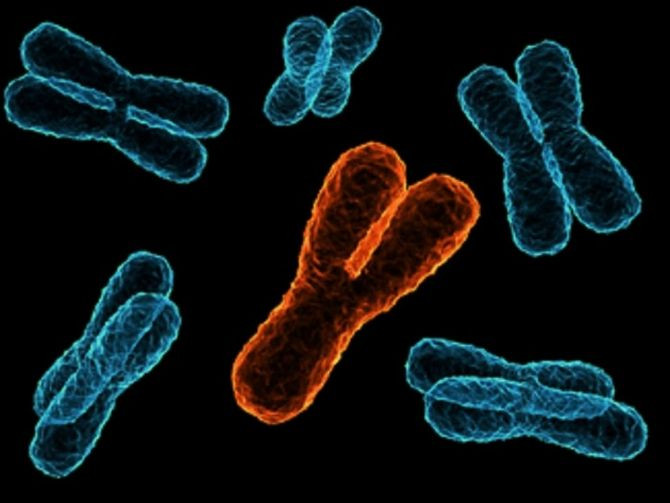Biologists Debunk the 'Rotting' Y Chromosome Theory, Men Will Still Exist

Biologists have previously predicted that that the male sex-determining Y chromosome, which once carried around 800 genes, like the X, has lost hundreds of them over the past 300 million years, will mutate itself out of existence, leading to the eventual extinction of men.
However, researchers of a study published in the latest issue of Nature found evidence to suggest that the Y chromosome will not shed anymore of the 19 ancestral genes that it is left with.
Researchers at the Whitehead Institute for Biomedical Research at MIT compared sequenced the Y chromosome of the rhesus macaque, a primate whose evolutionary path diverged from that of humans around 25 million years ago, to human and chimpanzee Y chromosomes sequences and discovered that humans had only lost one gene from the Y chromosome since the time the rhesus macaque and people took on separate evolutionary paths.
Researchers said that their findings debunks the “so-called rotting Y theory” that assumed that the human Y chromosome will continue to rapidly decay genetically until it is devoid of any genes, including its raison d’être, male-determining gene, in less than 10 million years.
"For the past 10 years, the one dominant storyline in public discourse about the Y is that it is disappearing," Whitehead Institute Director David Page said in a statement released on Wednesday. "Putting aside the question of whether this ever had a sound scientific basis, the story went viral—fast—and has stayed viral. I can't give a talk without being asked about the disappearing Y. This idea has been so pervasive that it has kept us from moving on to address the really important questions about the Y."
Researchers said that the Y chromosome emerged around 200 to 300 million years ago, and before male and females were determined by environmental factors like temperature, rather than genetics.
Scientists believe that to maintain genetic diversity and prevent potentially harmful mutations the early X and Y chromosomes reshuffled their genetic material in each generation between the X and the Y on the 23rd pair of the specialized sex chromosome in humans in a process called "crossing over”.
About 300 million years ago, a segment of the X stopped crossing over with the Y and over the next millions of years four more segments also ceased crossing over with the Y, which resulted in the Y to rapidly wither away as it loses most of its genes as well as its ability to recombine with the X.
Lab researcher Jennifer Hughes and her team had sequence of the chimpanzee Y chromosome in 2010 and found that chimpanzees have shed many protein-coding genes since their lineage diverged from that of humans about 6 million years ago, but other parts of their Y chromosomes had been duplicated in that time.
After decoding the 25 million years old rhesus macaque, an ancestor to both chimpanzees and humans, the researchers found that the macaque Y contained just 20 genes, just one more that the human Y has lost, and although the human Y chromosome has lengthened and grown significantly longer than the macaque chromosome, the genes were mostly the same.
"The Y was in free fall early on, and genes were lost at an incredibly rapid rate," said Page. "But then it leveled off, and it's been doing just fine since."
"Now our empirical data fly in the face of the other theories out there. With no loss of genes on the rhesus Y and one gene lost on the human Y, it's clear the Y isn't going anywhere," Hughes concluded.



























